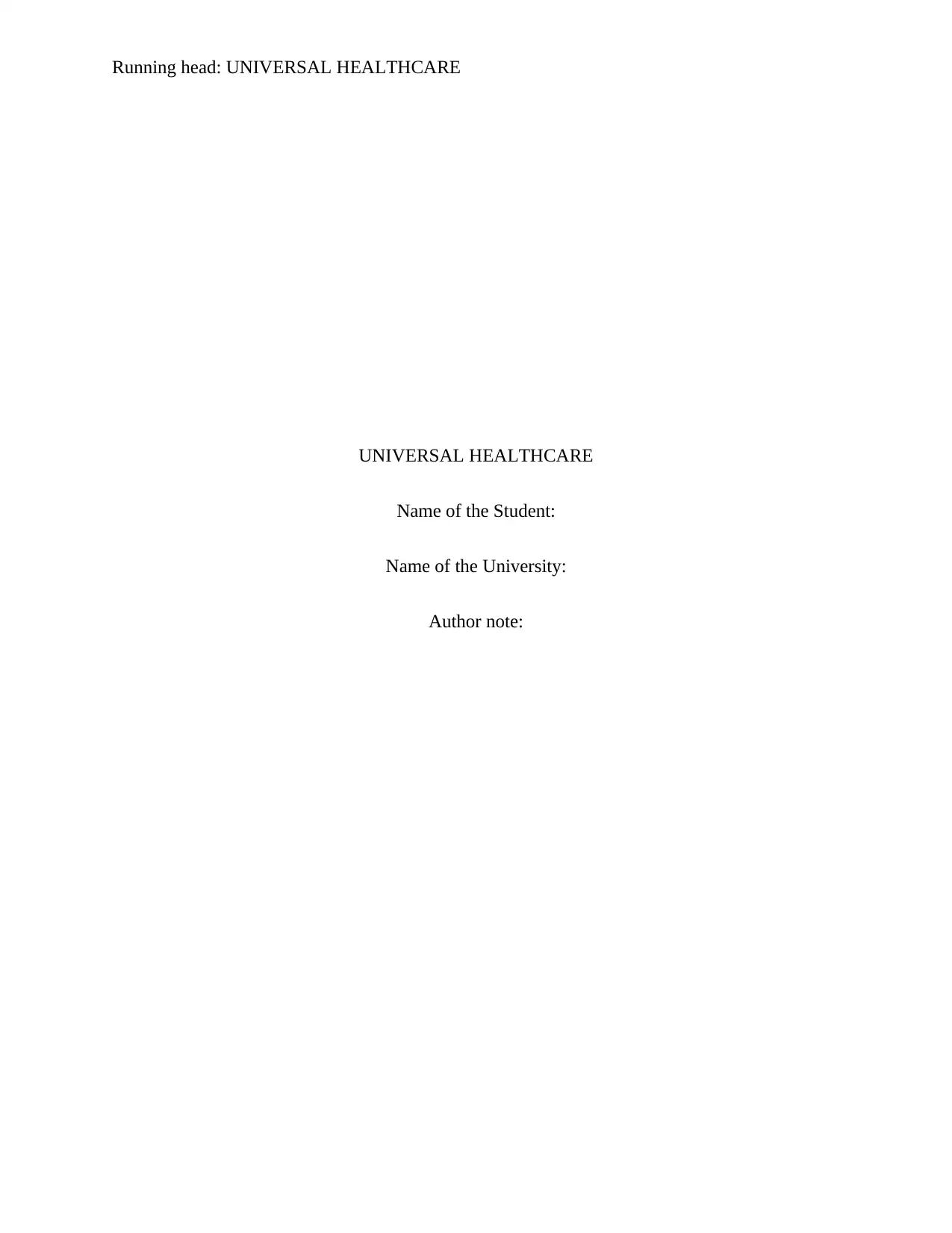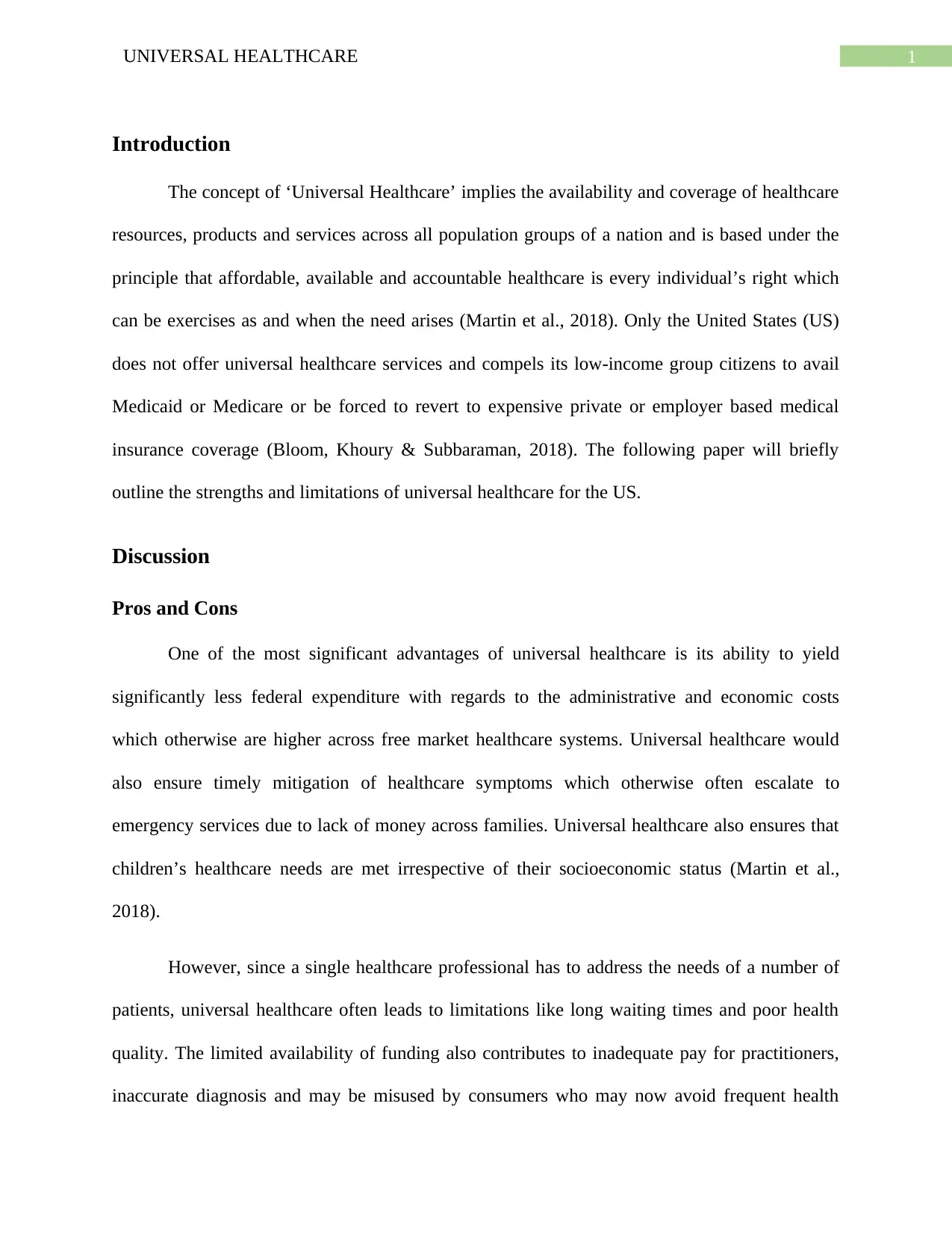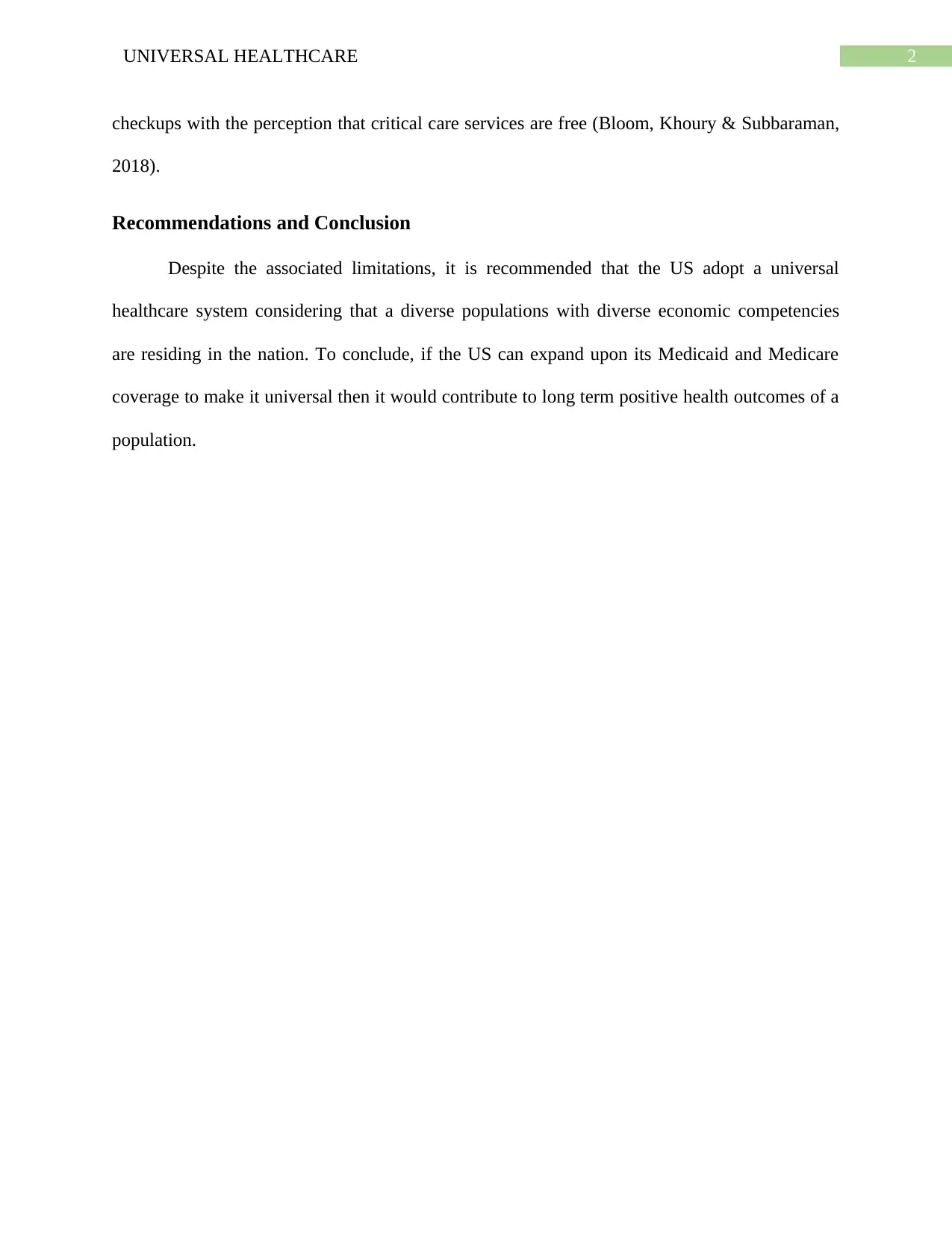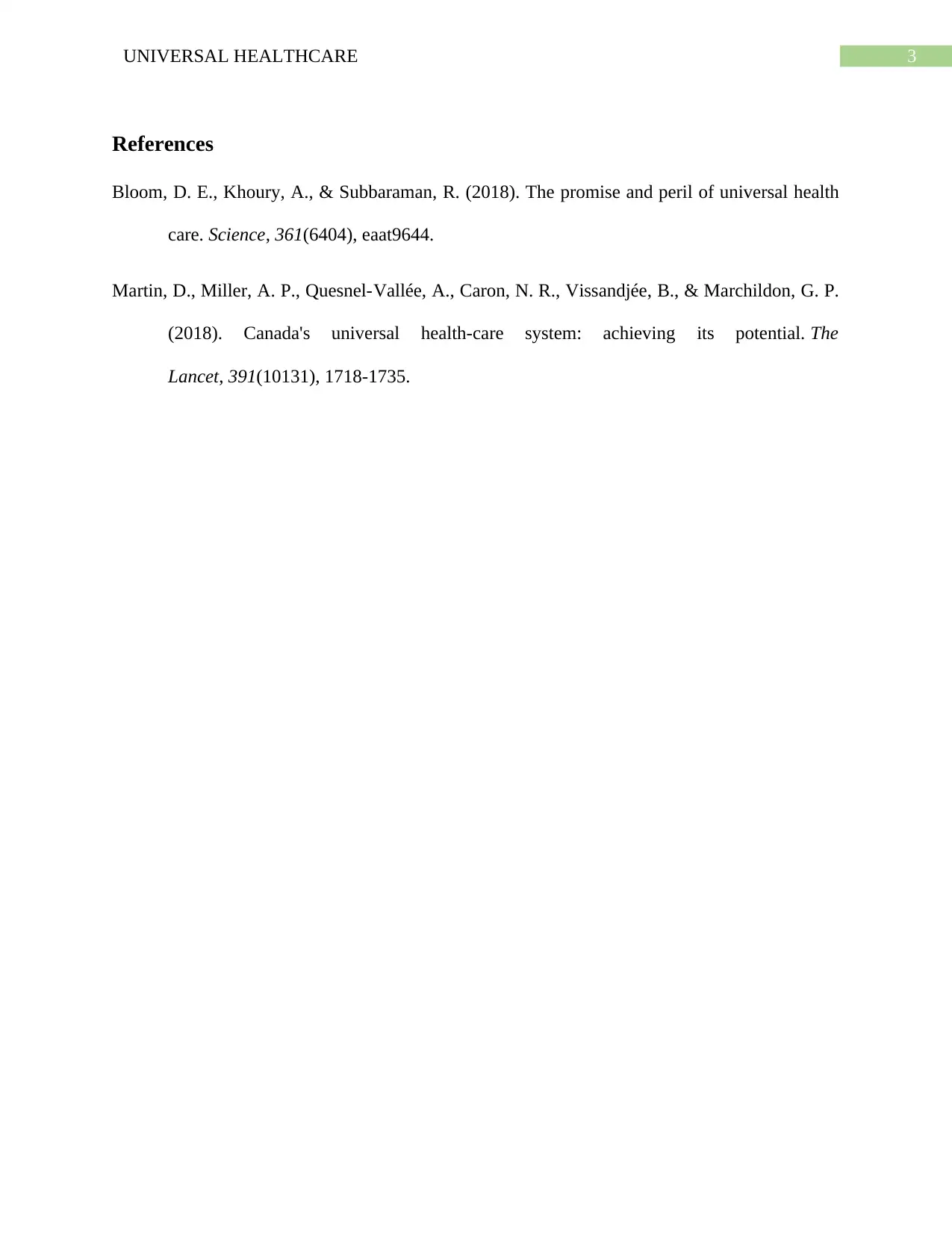Universal Healthcare: A Comparative Analysis of US Healthcare System
VerifiedAdded on 2022/08/12
|4
|478
|473
Report
AI Summary
This report provides an analysis of the universal healthcare system within the context of the United States. It begins by defining universal healthcare and its principles, emphasizing the right to accessible and affordable healthcare. The report then delves into the advantages of such a system, highlighting reduced federal expenditure, improved healthcare access for all income levels, and comprehensive coverage for children. However, it also acknowledges the limitations, such as potential long waiting times, reduced quality of care, and the risk of misuse. The report concludes with a recommendation for the US to expand its Medicaid and Medicare coverage to achieve universal healthcare, suggesting that such a move could lead to positive health outcomes for the population. The analysis is supported by references to relevant literature, ensuring a comprehensive overview of the subject.
1 out of 4











![[object Object]](/_next/static/media/star-bottom.7253800d.svg)